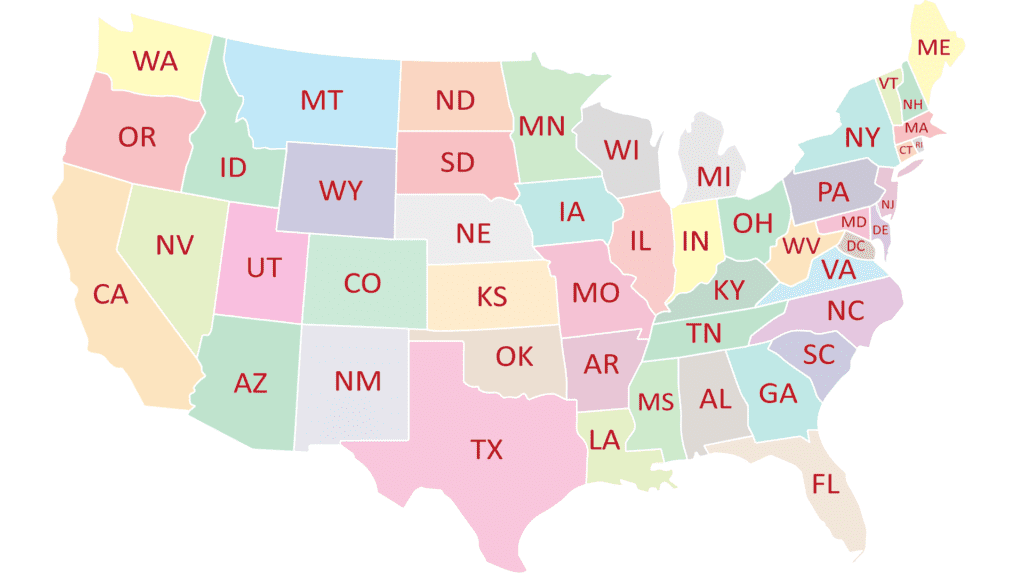Teacher Certification Pathways Across the U.S.

Teaching is a rewarding, impactful career. But to qualify as a teacher, you must obtain the requisite state-specific certification. Teacher certification requirements across the U.S. are diverse and structured based on local educational priorities and challenges. Exploring various certification pathways provides valuable insights that help aspiring educators choose the best option for them.
Why Teacher Certification Matters
Ensuring Quality Education
Certification ensures teachers meet state standards for subject matter expertise and pedagogy. Several studies show teacher quality and credentials impact student achievement, especially in math performance.
Reflecting Local Priorities
States consider local needs when setting up teacher licensure requirements. States with a significant presence of multicultural communities and multilingual speakers may require bilingual educators. Those with severe STEM teacher shortages may prioritize STEM training for aspiring teachers.
Preparing for Diverse Classrooms
Certification processes emphasize skills to meet the needs of diverse student populations. Teacher candidates learn the skills to foster a sense of belonging and community in the classroom and the wider school setting. This, in turn, empowers learners to flourish as confident students and adults later in life.
The Core Components of Teacher Certification
Academic Qualifications
Aspiring educators must have a bachelor’s degree in education or a related field. An undergraduate education degree equips candidates with:
- Content knowledge
- Pedagogy knowledge
- Teaching skills, strategies, and methodologies
A bachelor’s degree in a field related to the subject a teacher candidate wishes to teach provides a deep knowledge of content and expertise that helps them be effective teachers.
Teacher Preparation Programs
Many states require aspiring teachers to complete an educator preparation program (EPP). These state-approved programs impart foundational teaching skills and prepare would-be educators for their roles as strong early childhood, elementary, or secondary teachers.
Classroom Experience
Most states expect teacher candidates to accumulate a given number of student teaching hours. Teaching experience places aspiring educators in a classroom setting, where they practice their teaching and classroom management skills, identify their strengths and areas for improvement, and gain insights about the classroom environment.

State-Specific Exams
Currently, 46 states require teacher candidates to pass various Praxis tests. However, Michigan, Florida, Illinois, and Arizona use other state-specific exams to test candidates. In states like California, the only Praxis test administered is the Praxis Speech-Language Pathology.
State Spotlight: California, Michigan, and Texas
California
California’s urban districts have a high demand for teachers. To meet this demand, the state offers a multi-tiered teaching certification process, with several examinations for single-subject and multi-subject candidates. Candidates start with a Preliminary Credential, which is valid for five years. Out-of-state teachers must pass the Preliminary Educational Technology Test to demonstrate effective technology use at the foundational level.
Other tests offered include:
- The California Basic Educational Skills Test (CBEST), which tests proficiency in math skills, reading, and writing.
- The California Subject Examinations for Teachers (CSET), which tests subject matter competency.
- Reading Instruction Competence Assessment (RICA)
- The Speech-Language Pathology (SLP) test
The state emphasizes English Language Learner strategies, with tests like the California Teacher of English Learners (CTEL) examination and the California Subject Examinations for Teachers: World Languages, which tests proficiency in languages other than English.
Michigan
Unlike California’s more structured multi-tier approach, Michigan provides a more linear path to teaching. The state offers alternative certification programs like the Michigan teacher certification program to address teacher shortages. In addition, teacher candidates must pass the appropriate Michigan Tests for Teacher Certification (MTTC) examinations. The MTTC system consists of content exams for each subject area. So, candidates must take an MTTC test for each endorsement area they seek.
Texas
The demand for bilingual teachers in Texas is high. Fortunately, the state offers flexibility in alternative teaching certification. It also provides regional education service centers for preparation, making it easier for potential teachers to obtain teaching qualifications.
The Texas Examinations of Educator Standards (TExES) is the primary examination for teacher candidates in the state. Like California and Michigan, the Texas State Board for Educator Certification (SBEC) has developed various exam extensions for testing specific areas, including:
- TX PACT (Pre-Admission content test)
- edTPA pilot exams
- Texas Assessment of Sign Communications (TASC and TASC-ASL)
H2: Challenges in Navigating Certification Pathways
Financial and Time Commitments
Aspiring teachers may need help balancing the costs of education and certification exams. Candidates already working must balance work, the educator preparation program, and their personal life.

Understanding State-Specific Rules
Navigating the unique state requirements, such as coursework for California or bilingual certifications in Texas, can take time and effort.
Access to Preparation Programs
Aspiring educators in rural areas and underserved communities may not have ready access to teacher preparation programs. For most, enrolling in one such program would mean relocating to a region with easy access to an EPP, which circles back to extra financial burden.
Tips for Aspiring Educators
Research State-Specific Requirements
Understand the local certification standards to know whether you qualify to enroll in a teacher preparation program. Remember, most states have different requirements for in-state and out-of-state candidates, so research the preconditions beforehand and understand what’s expected of you before applying for certification.
Seek Mentorship and Resources
Consider joining mentorship programs for support while pursuing the educator preparation program and use study guides to prepare for certification exams.
Stay Adaptable
Certification rules and policies change from time to time. Adapt to any policy changes to ensure your journey to licensure is successful.
Conclusion
If a teaching career is one of your life goals, you can attain this dream by pursuing an educator preparation program. Remember that teacher qualification requirements are unique to each state, so it’s essential to understand state-specific certification pathways in states like Michigan, California, and Texas. Research your options and align your preparation with your goals.






